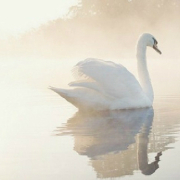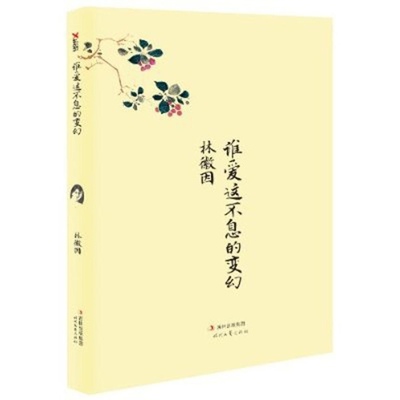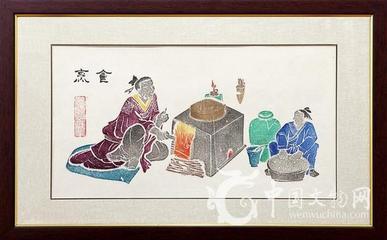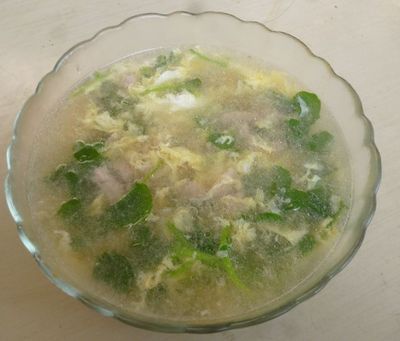什么是诗歌? 一个广义的、高层次的定义——按照斯迪芬·考科斯(StephenCox)的观点就是:诗歌是情感密度最大的文字形式——也就是说,在同样长度的语言里,诗歌凝聚了最大浓度的个人感悟。按这个标准,诗歌的形式、甚至优美的语言成为次要。
《英语诗歌的节奏和韵律》
英诗的韵律(Metre)〈〓〓〉英诗节奏(Rhythm)
构成英诗节奏的基础是韵律(metre)。在希腊语中,“metre”这个字是“尺度(标谁)”的意思。英诗就是根据诗行中的音节和重读节奏作为“尺度(标准)”来计算韵律的。韵律划分是诗歌分析的关键。每一行的最后一个音节是一个韵律。
英诗的特点之一是与其他文体不同的排列格式。各诗行不达到每页页边,每行开始词首大写。几行成为一节(stanza),不分段落。各行都要讲究一定的音节数量,行末押韵或不押韵,交错排列。英诗的韵律(Metre):英诗的韵律是依据音步包含音节的数量及重读音节的位置而加以区分的。传统英诗的韵律有六种: 抑扬格(Iambus)、扬抑格(Trochee)、抑抑扬格(Anapaest)、扬抑抑格(Dactyl)、抑扬抑格(Amphibrach)及扬扬格(Spondee)。
音节重读(stressed)〈〓〓〉非重读(unstressed)
这就是一种正规的重读形式,在诗歌中即体现为韵律。研究诗歌韵律规则的科学叫作韵律学(Prosody)。

1.音步(Foot):
英诗中这种重读与非重读音节的特殊性组合叫作音步(实际等于中文里的音节)。一个音步的音节数量可能为两个或三个音节(这里的一个音节等于中文里的一个汉字),但不能少于两个或多于三个音节,而且其中只有一个必须重读。分析英诗的格律就是将它划分成音步,并区分出是何种音步以及计算音步的数量。这种音步划分叫scansion。根据一首英诗组成的音步数量,每一诗行一个音步称“单音步”(monometer);每一诗行有两个音步的,称“双音步”(dimeter);含有三个音步的,称“三音步”(trimeter);此外还有四音步(tetrameter)、五音步、(pentameter)、六音步(hexameter)、七音步(heptameter)、八音步(octometer)。
Isthis | a fast, | to keqp
Thelard | or lean
Andclean? (Herrick)
2.韵律(Metre):
英诗的韵律是依据音步包含音节的数量及重读音节的位置而加以区分的。传统英诗的音步有六种:抑扬格(Lambus)、扬抑格(Trochee)、抑抑扬格(Anapaest)、扬抑抑格(Dactyl)及抑扬抑格(Amphibrach):
扬抑抑格(Dactyl)〈〓〓〉抑扬抑格(Amphibrach):
“⌒”非重读音节;“/”重读音节。
——涂寿鹏编著, 《英文诗歌导读》
英诗的韵
英语诗歌的押韵可以根据单词的内音素重复的部位不同而分成不同种类,最常见的有头韵(Alliteration)、谐元韵(Assonance)和尾韵(Rhyme)。头韵指词首重复,如great和grew;谐元韵是指词中重读元音重复,如great和fail;尾韵则指词尾音素重复,如great和bait。但一行诗中可能同时存在多种押韵形式:
Thelight that lies in women's eyes. --ThomasMoore
这行诗中既有头韵light和lies,谐元韵light、lies、eyes,又有且有尾韵(这种押韵方式称行中韵middlerhyme)lies和eyes。
英语诗歌的行与行之间的押韵格式称韵法(rhymingscheme)。常见有两行转韵(AABB)、隔行押韵(ABCB)、隔行交互押韵(ABAB)和交错押韵(ABBA)。
英诗体例:
十四行诗(sonnet):过去也曾音译为《商籁体》。十四行,抑扬格,五音步用作全诗的形式。首先出现于意大利,16世纪中传入英国,为伊丽莎白时代(伊丽莎白一世在位时期为1558一1603)文人所宠爱,莎士比亚、斯宾塞及西德尼(sidney)全都写下过著名的十四行诗。18世纪十四行诗曾受到冷落。但后又被浪漫派诗人济慈、沃兹沃斯等人所复兴,以后许多诗人也多所采用。 十四行诗本为意大利文sonetto,英文Sonnet、法文sonnet的音译。欧洲一种格律严谨的抒情诗体。最初流行于意大利,彼特拉克的创作使其臻于完美,又称“彼特拉克体”,后传到欧洲各国。由两节四行诗和两节三行诗组成,每行11个音节,韵式为ABBA,ABBA,CDE,CDE或ABBA,ABBA,CDC,CDC。另一种类型称为“莎士比亚体”(Shakespearean)或“伊丽莎白体”,由三节四行诗和两行对句组成,每行10个音节,韵式为:ABAB,CDCD,EFEF,GG。 英国的十四行诗有两种类型:意大利式(Petrarvhan)及莎士比业式(Shakesperoan)(英国式): A.意大利式十四行诗:模仿意大利诗人皮特拉克(Petrarch)所创的样式,由两部分组成:第一部分八行(TheOctave),由的个四行诗体(Quatrains)组成,韵脚是abbaabba;第二部分六行(TheSestet),韵脚可有不同形式。按严格的意大利十四行诗体,在前八行结尾诗意应告一段落,而后六行又转入新的诗意。 B.莎士比亚式十四行诗:由三个四行诗体组成,韵脚交替进行。最后是押韵的双行诗体。整个韵脚是ababcdcdefefgg。在莎士比亚式十四行诗中意境一气呵成,直到最后双行体,为全诗高潮。除莎士比亚外,其他诗人也采用此种形式。
SONNET 1《十四行诗集》第1首
by: WilliamShakespeare
From fairest creatures wedesire increase,对天生的尤物我们要求蕃盛,That thereby beauty'srose might never die,以便美的玫瑰永远不会枯死,But as the ripershould by time decease,但开透的花朵既要及时凋零,His tender heir mightbear his memory;就应把记忆交给娇嫩的后嗣;But thou, contractedto thine own bright eyes,但你,只和你自己的明眸定情,Feed'st thy light'sflame with self-substantial fuel,把自己当燃料喂养眼中的火焰,Making a famine whereabundance lies,和自己作对,待自己未免太狠,Thyself thy foe, tothy sweet self too cruel.把一片丰沃的土地变成荒田。Thout that are now theworld's fresh ornament, 你现在是大地的清新的点缀,And only herald to thegaudy spring,又是锦绣阳春的唯一的前锋,Within thine own budburiest thy content,为什么把富源葬送在嫩蕊里,And, tender churl,mak'st waste in niggarding.温柔的鄙夫,要吝啬,反而浪用?Pity the world, orelse this glutton be,可怜这个世界吧,要不然,贪夫,To eat the world'sdue, by the grave and thee.就吞噬世界的份,由你和坟墓。
SONNET 2《十四行诗集》第2首
by:William Shakespeare
WHEN forty winters shall besiege thy brow当四十个冬天围攻你的朱颜,And dig deep trenches in thy beauty's field,在你美的园地挖下深的战壕,Thy youth's proud livery, so gazed on now,你青春的华服,那么被人艳羡,Will be a tottered weed of small worth held:将成褴褛的败絮,谁也不要瞧:Then being asked where all thy beauty lies,那时人若问起你的美在何处,Where all the treasure of thy lusty days,哪里是你那少壮年华的宝藏,To say within thine own deep-sunken eyes你说,"在我这双深陷的眼眶里,Were an all-eating shame and thriftless praise.是贪婪的羞耻,和无益的颂扬。"How much more prasie deserved thy beauty's use你的美的用途会更值得赞美,If thou couldst answer, 'This fair child of mine如果你能够说,"我这宁馨小童Shall sum my count and make my old excuse,'将总结我的账,宽恕我的老迈,"Proving his beauty by succession thine.证实他的美在继承你的血统!This were to be new made when thou art old这将使你在衰老的暮年更生,And see thy blood warm when thou feel'st cold.并使你垂冷的血液感到重温。 其实,泰戈尔的《飞鸟集》和纪伯伦的《沙与沫》诗集都很美...
惠特曼(1810年-1892,美国思想家、文学家)。他的第一部诗集是《草叶集》。 英文诗被誉为英国文学的花园,我们不读英文诗,就无法体会欣赏英国文学。可是有些人却压根儿就以为诗太艰深。当然,它在韵律的约束上,与散文有若干的不相同,但这些都可以在吟诵阅读中自然地体会到。在这里,我们从斯蒂文生(R.L.Stevenson)到罗塞蒂(C. G.Rossetti)等几个代表性诗人的诗篇中,选出比较简单的几首来。虽然不多,但是每一篇都具有极高的艺术价值。如果同学们能透过这些而触及诗的境界,那那么就请更上一层楼,阅读程度更高的作品吧。常读诗歌能增强对语言的感受力,以及正确文法的认识,所以还可以做为学习英文的良好教材。一个人若能在人生最纯洁的青少年期,接触到优美的诗,进而领略、感受到人生的美好,体会生命的喜悦,那该有多幸福啊!
附:英文诗歌的读法 我们所居住的这个世界,充满了各种不同的声音和旋律。捕捉住那充满在天地间的美妙旋律,并把它改变为语言的旋律,这就是诗。诗,是文学中的花园。 在诗中,这种旋律称为韵律。英文诗一般都是把强音节和弱音节交互配列。换句话说,就是情感的旋律,表现而为声音的强弱和抑扬的起伏。而其配列,有的是规则的,也有的是并不规则的。又因为其组合的不同,而有不同的名称。 在所有的文学类型中,诗的情感最广且深。它用简短的语词,唱出各色人的心声,它还具有能使各个不同的人的心灵相通的表现法。要想品味诗的美,如果知道一些有关韵律法的法则,就会方便得多。其实与其只研究形式方面,不如努力多去体会诗中所涵蕴的意义,才更重要。换句话说,与其研究诗人,为了将自己的理想、情感传达给读者,而运用的技巧---韵律法,不如用心鉴赏诗人寄託在诗中的思想和情感本身,才更重要。
《英文诗歌欣赏》
⊙Myheart will go on 《我心永恒》(电影泰坦尼克主题曲)
Every night in mydreams 每一个夜晚,在我的梦里I see you, i feelyou 我看见你,我感觉到你That is how i knowyou go on 我懂得你的心Far across thedistance 跨越我们心灵的空间And the spacesbetween us 你向我显现你的来临You have come toshow you go on 无论你如何远离我
Near far wheneveryou are 我相信我心已相随I believe that theheart does go on 你再次敲开我的心扉Once more you openthe door 你融入我的心灵And you're here inmy heart 我心与你同往And my heart willgo on and on 与你相随
Love can touch usone time 爱每时每刻在触摸我们And last for alifetime 为着生命最后的时刻And never let gotill we're one 不愿失去,直到永远
Love was when iloved you 爱就是当我爱着你时的感觉One true time ihold you 我牢牢把握住那真实的一刻In my life we'llalways go on 在我的生命里,爱无止境
Near far wheneveryou are 无论你离我多么遥远I believe that theheart does go on 我相信我心同往Once more you openthe door 你敲开我的心扉And you're here inmy heart 你融入我的心灵And my heart willgo on and on 我心与你同往,我心与你相依
There is some lovethat will not go away 爱与我是那样的靠近
You're here thereis nothing i fear 你就在我身旁,以至我全无畏惧And i know that myheart will go on 我知道我心与你相依We'll stay foreverthis way 我们永远相携而行You are safe in myheart 在我心中你安然无恙And my heart willgo on and on 我心属于你,爱无止境
⊙ Rain 《雨》Rain is fallingall around, 雨儿在到处降落,It falls on fieldand tree, 它落在田野和树梢,It rains on theumbrella here, 它落在这边的雨伞上,And on the shipsat sea. 又落在航行海上的船只。 ------ by R. L.Stevenson(1850-1894)⊙ What Does The Bee Do?《蜜蜂做些什麼呢?》What does the beedo? 蜜蜂做些什麼?Bring home honey. 把蜂蜜带回家。And what doesFather do? 父亲做些什麼?Bring home money. 把钱带回家。And what doesMother do? 母亲做些什麼?Lay out the money. 把钱用光。And what does babydo? 婴儿做些什麼?Eat up the honey. 把蜜吃光。 ----- byC. G. Rossetti (1803-1894)⊙ O Sailor, Come Ashore《啊!水手,上岸吧》(PartI)O sailor, comeashore, 啊!水手,上岸吧What have youbrought for me? 你给我带来什麼?Red coral ,white coral,红的,白的,Coral from thesea. 海里的珊瑚。(PartII)I did not dig itfrom the ground, 它不是我从地下挖的,Nor pluck it froma tree, 也不是从树上摘的;Feeble insectsmade it, 它是暴风雨的海里,In the stormy sea. 弱小昆虫做成的。 ------by C. G. Rossetti(1803-1894)
◎I’ll try《我决心试一试》The little boy whosays “I'll try” 那个小男孩说“我决心试一试”Will climb to thehill-top 他就将登上山峰The little boy whosays “I can't” 另一个小男孩说“我不能”Will at the bottomstop 他将在山脚下停滞不前“I'll try” doesgreat things every day“我决心试一试”会使你每天都能办大事“I can't” getsnothing done “我不能”会使你一事无成Be sure then thatyou say “I'll try” 因此你肯定会说“我决心试一试”And let “I can't”alone. 你才会不闻不问“我不能”。 ------by C. G. Rossetti (1803-1894)◎ The Wind 《风》I saw you toss thekites on high, 你托着风筝在天上飘摇,And blow the birdsabout the sky; 你吹得鸟儿东飞西绕;And all around Iheard you pass, 我听见你四处走动,Like ladies'skirts across the grass, 像女子的裙边擦过青草。O wind, a-blowingall day long, 风啊,你整天整天地吹,O wind, that singsso loud a song! 风啊,你的歌声是那样地高!I saw thedifferent things you did, 你万般的作为我已看到,But always youyourself you hid. 可你躲躲闪闪,虚无缥缈。I felt you push, Iheard you call, 我感觉你推,我听见你叫,I could not seeyourself at all, 四处寻去,却是踪迹杳杳。O wind, a-blowingall day long, 风啊,你整天整天地吹,O wind, that singsso loud a song! 风啊,你的歌声是那样地高!O you that are sostrong and cold, 啊,你强劲有力却又峻冷清高,O blower, are youyoung or old? 啊,你青春年少还是皓首苍老?Are you a beast offield and tree, 你是野地和树上的怪兽吧,Or just a strongerchild than me? 或是毛孩一个,我力不能超。O wind, a-blowingall day long, 风啊,你整天整天地吹,O wind, that singsso loud a song! 风啊,你的歌声是那样地高! ----- by R. L.Stevenson(1850-1894)
另一首诗人的《风》之歌:
O wind , why do you never rest, 风啊!为何你永不休止Wandering, whistling to and fro, 来来回回的漂泊,呼啸Bring rain out of the west, 从西方带来了雨From the dim north bringing snow? 从蒙眬的北方带来了雪。
⊙ THE CUCKOO 《布谷鸟》
In April, 四月里,Come he will, 它就来了,In May, 五月里,Sing all day, 整天吟唱多逍遥,In June, 六月里,Change his tune, 它在改变曲调,In July, 七月里,Prepare to fly, 准备飞翔,In August, 八月里,Go he must! 它就得离去了!
----byMother Goose's Nursery Rhyme
⊙ COLORS《颜色》
What is pink? Arose is pink 什么是粉红色?By the fountain'sbrink. 喷泉边的玫瑰就是粉红色。What is red? Apoppy's red 什么是艳红色?In its barley bed. 在大麦床里的罂粟花就是艳红色。What is blue? Thesky is blue 什么是蔚蓝色?天空就是蔚蓝色,Where the cloudsfloat thro'. 云朵飘过其间。What is white? Aswan is white 什么是白色?Sailing in thelight. 阳光下嬉水的天鹅就是白色。What is yellow?Pears are yellow, 什么是黄色?梨儿就是黄色,Rich and ripe andmellow. 熟透且多汁。What is green? Thegrass is green, 什么是绿色?草就是绿色,With small flowersbetween. 小花掺杂其间。What is violet?Clouds are violet 什么是紫色?夏日夕阳里的In the summertwilight. 彩霞就是紫色。What is orange?Why, an orange, 什么是橘色?当然啦!Just an orange! 橘子就是橘色。
----by C. G. Rossetti
⊙A House Of Cards《纸牌堆成的房子》
(1)A house of cards 纸牌堆成的房子Is neat and small; 洁净及小巧Shake the table, 摇摇桌子It must fall. 它一定会倒。
(2)Find the courtcards 找出绘有人像的纸牌One by one; 一张一张地竖起Raise it, roof it,---- 再加上顶盖Now it's done;---- 现在房子已经盖好Shake the table! 摇摇桌子That's the fun. 那就是它的乐趣。
----by C.G. Rossetti
⊙What Does LittleBirdie Say? 《小鸟说些什么呢?》
(1)What does littlebirdie say, 小鸟说些什么呢?In her nest atpeep of day? 在这黎明初晓的小巢中?Let me fly, sayslittle birdie, 小鸟说,让我飞,Mother, let me flyaway, 妈妈,让我飞走吧。Birdie, rest alittle longer, 宝贝,稍留久一会儿,Till the littlewings are stronger. 等到那对小翅膀再长硬些儿。So she rests alittle longer, 因此它又多留了一会儿,Then she fliesaway. 然而它还是飞走了。
(2)What does littlebaby say, 婴儿说些什么,In her bed at peepof day? 在破晓时分的床上?Baby says, likelittle birdie, 婴儿像小鸟那样说,Let me rise andfly away. 让我起来飞走吧。Baby, sleep alittle longer, 乖乖,稍微多睡一会儿,Till the littlelimbs are stronger. 等你的四肢再长硬点儿。If she sleeps alittle longer, 如果她再多睡一会儿,Baby too shall flyaway. 婴儿必然也会像鸟儿一样地飞走。
----byAlfred Tennyson, 1809-1892
⊙The Star《星星》
(1)Twinkle, twinkle,little star! 闪耀,闪耀,小星星!How I wonder whatyou are, 我想知道你身形,Up above the worldso high, 高高挂在天空中,Like a diamond inthe sky. 就像天上的钻石。
(2)When the blazingsun is gone, 灿烂太阳已西沉,When he nothingshines upon, 它已不再照万物,Then you show yourlittle light, 你就显露些微光,Twinkle, twinkleall the night. 整个晚上眨眼睛。
(3)The dark blue skyyou keep 留恋漆黑的天空And often thro' mycurtains peep, 穿过窗帘向我望,For you never shutyour eye 永不闭上你眼睛Till the sun is inthe sky. 直到太阳又现形。
(4)'Tis your brightand tiny spark 你这微亮的火星,Lights thetraveler in the dark; 黑夜照耀着游人,Though I know notwhat you are 虽我不知你身形,Twinkle, twinkle,little star! 闪耀,闪耀,小星星!
-----by Jane Taylor,1783-1824
⊙At TheSeaside 《海边》
(1)When I was downbeside the sea 当我到海边时A wooden spadethey gave to me 他们给了我一把木铲To dig the sandyshore. 好去挖掘沙滩。
(2)The holes wereempty like a cup 挖成像杯状般的空洞In every hole thesea camp up, 让每个洞中的海水涌现Till it could comeno more. 直到它不能再涌现。
----by R.L. Stevenson
⊙Boats Sail On TheRivers 《小舟在河上航行》
(1)Boats sail on therivers, 小舟在河上航行,And ships sail onthe seas; 大船在海中操轮,But clouds thatsail across the sky, 然而白云飘过天空时,Are prettier farthan these. 比这些更为悦人。
(2)There are bridgeson the rivers, 河上有桥,As pretty as youplease; 如你所愿的那么悦目;But the bow thatbridges heaven, 然而横跨在穹苍的长虹,And overtops thetrees, 却比树梢更高,And builds a roadfrom earth to sky, 而能建筑一条通行天际的道路,Is prettier farthan these. 比这些更为美好。
----by C. G. Rossetti
⊙The Swing《秋千》
(1)How do you like togo up in a swing, 你喜欢荡一趟秋千,Up in the air soblue? 置身于蓝蓝的晴空吗?Oh, I do think itthe pleasantest thing 啊,我认为这是小孩所能做到的Ever a child cando. 最愉快的玩耍。
(2)Up in the air andover the wall, 越过墙外高踞天空,Till I can see sowide, 直到我能望见如此广大的世界,River and treesand cattle and all 河流、树木、牛群,Over thecountryside ----还有整个的乡村。
(3)Till I look downon the garden green 直到我俯瞰着翠绿的花园Down on the roofso brown ----以及棕色的屋顶Up in the air I goflying again 我又飞上天去,Up in the air anddown! 在天地间上下穿梭!
----by R. L.Stevenson
⊙The Blossom《花儿》
(1)Merry, merrysparrow! 愉快,愉快的小麻雀!Under leaves sogreen, 在如此翠绿的树叶下,A happy blossom 一朵幸福的花儿Sees you, swift asarrow, 看着你,如箭般地敏捷,Seek your cradlenarrow 在我的胸前寻找Near my bosom. 你那窄小的摇篮。
(2)Pretty, prettyrobin! 漂亮,漂亮的知更鸟!Under leaves sogreen, 在如此翠绿的树叶下,A happy blossom 一朵幸福的花朵Hears you sobbing,sobbing, 听到你呜咽,呜咽,Pretty, pretty,robin, 漂亮,漂亮的知更鸟!Near my bosom. 在我的胸前盘旋。
----by William Blake, 1757-1827
——<以上根据《FOX之家》和《暗香疏“颖”》等人的新浪博客改编>——
 爱华网
爱华网



